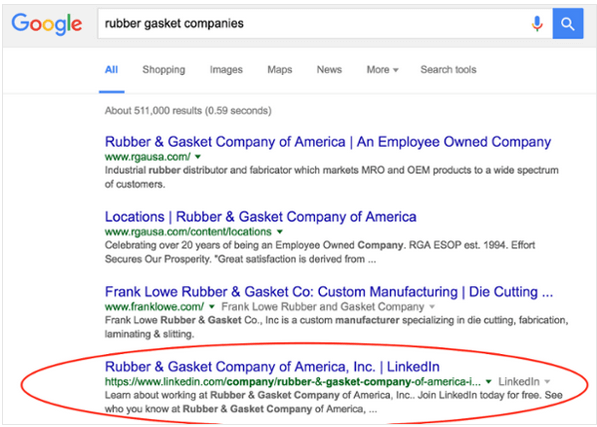|
Every business has different products and services, but they share the same marketing goal: to rank on Page 1 in Google. So if you don’t see top spots for your business in organic searches, it can be frustrating — especially since Google will never reveal its search algorithm’s secret sauce. This algorithm contains more than 200 unique signals that factor into your website’s ranking. Luckily, Google has shared clues to the algorithm signals in its own publications for SEO and marketing experts to leverage. Sharing these clues ensures a better Internet experience for all Google users and allows marketing agencies like RPM to develop content and website structuring strategies that deliver higher organic ranking performances. When analyzing client websites, we’ve implemented a number of changes that improved those businesses’ Google rankings. Here are some tips for small business seo: 1. Your keywords are too competitive. Search “cheeseburger” in Google right now, and the results probably won’t surprise you — McDonalds, Burger King, or perhaps a list of the 10 best burger spots in your area. A privately owned burger joint in small-town Pennsylvania doesn’t have a chance to compete with these well-established chain restaurants. But as more people use Google to find products they need, they’re becoming smarter about their searches and using complex keyword phrases. So, what if this burger joint started adding specific keyword phrases to its website? Not even McDonalds can compete with a phrase like “Allentown fire-grilled burgers." Rule #1: Structure content around more complex keyword phrases, rather than competitive generic phrases. 2. You’re not utilizing social media. Google is quick to emphasize that social signals do NOT factor into organic rankings. However, there are two ways social media posts can impact your rankings indirectly:
Rule #2: Spend time building your social media presence, as it has an indirect effect on your website’s organic rankings. 3. Your URLs are a bunch of numbers and symbols. Straightforward, subject-relevant URLs allow search engines to crawl and index your pages easily. They also make your pages more clickable and user-friendly. Consider the following URL structure for a sheet metal fabricator’s laser cutting page: The URL is difficult to remember for sharing and, when published in your search results, may create uncertainty for clicking. Users are much more likely to click on the following: Rule #3: Create a simple, keyword-relevant structure for all website pages. 4. Your website isn’t built for mobile. In April 2015, Google announced updates to its algorithm that awarded higher rankings to mobile-friendly websites for searches completed on mobile devices. Deemed “Mobilegeddon,” it quickly became one of Google’s most wide-reaching algorithm changes. While the change only affects mobile searches, consider that 56% of B2B buyers use mobile phones to access and purchase from B2B vendors. That’s a significant portion of your audience from which you could be missing opportunities. Wondering how your website measures up? Enter your URL in Google’s Mobile-Friendly Test to determine how well your page is received by Google and mobile users. The test will even show you what your website looks like on a mobile phone. If your website doesn’t meet Google’s demands, be sure to check out our 9 Steps to Successful Responsive Website Design. Rule #4: Make sure your website passes Google’s Mobile-Friendly Test. Final thoughts These are only four oversights that we’ve seen occur across websites and marketing strategies in Mcallen.
When you’re ready to take a deep-dive into SEO tactics and website improvements, check out RPM’s Learning SEO from the Experts: Keywords & Understanding Fundamentals.
1 Comment
7/14/2017 05:28:42 am
Agree with all you say, plus there are a number of things left out, which I am sure you know too but we can't give away all the secret sauce eh!
Reply
Leave a Reply. |
- Website Designer
- Services
- Social Media
- Search Engine Optimization
- Small Business Website Marketing Dallas
- Brownsville Web Design
- Web Design Houston Tx
- San Antonio Web Design
- Answers to Top 4 Local Seo FAQ's
- How to do Seo Marketing in Mcallen Texas
- About Rick
- Blog
- Contact
- Rank My Site!
- Privacy Policy
- Terms and Conditions
- Zitro Case Study
- Free Website Analysis
- Google My Business Local Ranking 2018
- Small Business Website Marketing Dallas
- Lawyer Seo
- Immigration seo
- danddfencecompany
- Magic Valley




 RSS Feed
RSS Feed
